Table of Contents
Multiple health conditions can cause back pain. But do kidney stones cause back pain? What are the other symptoms of kidney stones? What are the other conditions that can cause back pain? What does kidney pain feel like, and how is it different from muscle pain?
This article provides a simplified explanation of these questions, along with information on kidney stone treatment and danger signs that indicate it’s time to see your doctor.
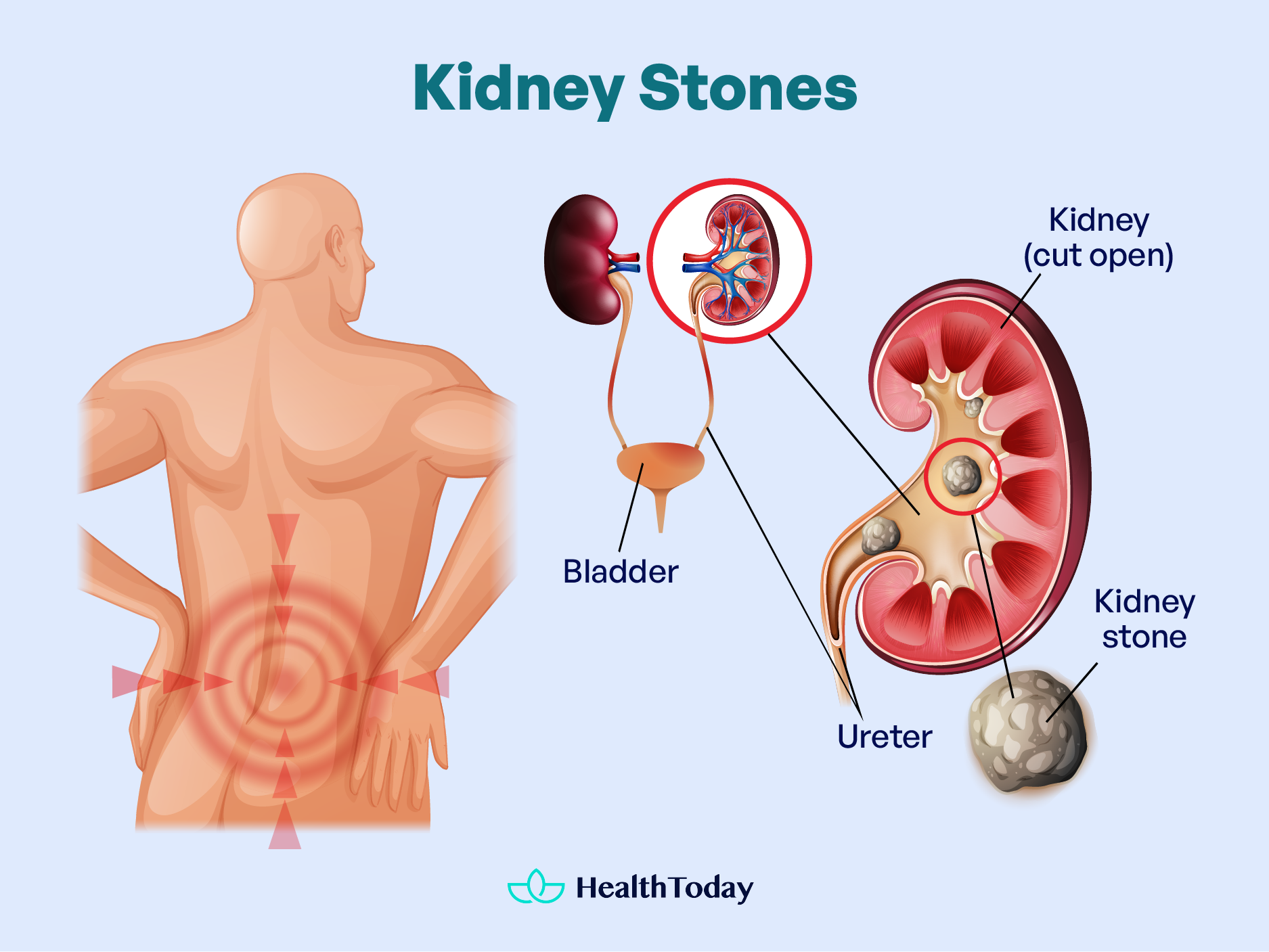
Do kidney stones cause back pain? Other causes of back pain
Kidney stones can cause back pain (1). Kidney stones are small solid masses composed of minerals and other substances present in the urinary tract (2). Other names for kidney stones are renal calculi and nephrolithiasis.
Causes
The exact cause of a kidney stone depends upon its composition (1). Recurrent kidney stones can run in families. Kidney stones have varying compositions (1):
- Calcium stones are quite prevalent and usually occur in young males between 20 to 30 years old.
- Some foods, such as spinach, contain oxalate. Excess consumption of oxalates can cause these stones. Some diseases of the small intestine also increase the risk of oxalate stones.
- Some people have cystinuria, a genetic disease that causes cystine stones.
- Recurrent urinary tract infections can result in struvite stones, which are large and can block the urinary tract.
- People with gout or receiving chemotherapy can develop uric acid stones.
Stones are formed when there is an excess of a specific mineral in the urine. The most common cause is not drinking enough fluids and not making enough urine (1).
Why do kidney stones cause back pain?
Our urinary tract has two kidneys, each with a ureter (tube) that drains urine to the bladder and a urethra that drains urine from the bladder to the outside of the body (3).
Usually, kidney stones do not cause symptoms until they move from the kidneys through the ureter to the bladder (4). Kidney stones 3 millimeters or larger can block the ureter.
When a kidney stone blocks the ureter, urine backs up to the kidney, resulting in swelling (hydronephrosis). This blockage also causes the ureter to spasm, which causes severe, sharp pain that radiates to the back, groin, and side of the belly (5).
Prevalence of kidney stones
According to the National Kidney Foundation, the risk of developing renal calculi is 11 percent in males and 9 percent in females. During 2013 – 2014, the prevalence of kidney stones in the United States was 10 percent (6).
Is kidney stone pain constant?
The pain of kidney stones can be mild or severe. The pain usually comes and goes in waves. This coming and going of pain in intervals is referred to as colic pain (7). But in certain cases, it can be severe and constant.

Can kidney stones cause back pain?
The pain of kidney stones is usually radiating, which means it starts in one place and then spreads toward another. This pain can occur on the side of the abdomen (flank) and radiate to the lower back below the ribs or in the groin area (5, 4). The intensity of pain usually fluctuates and can last as little as 20 minutes or may last for hours. Sufferers may find it difficult to get into a comfortable position due to the pain of kidney stones (4). The nature of this pain may be dull, achy, or maybe severe stabbing (2).
Kidney stones are solid masses of crystals formed in the urinary tract. The cause depends on the type of the stone. They can be calcium, oxalate, cystine, uric acid, or struvite stones. Kidney stones can get stuck in the ureter, which spasms to try to pass the stone, resulting in severe pain. Kidney pain usually starts in the flank region and spreads to the lower back below the ribs and the groin. This pain comes in waves.
Back pain from kidney stones: Signs you need to know
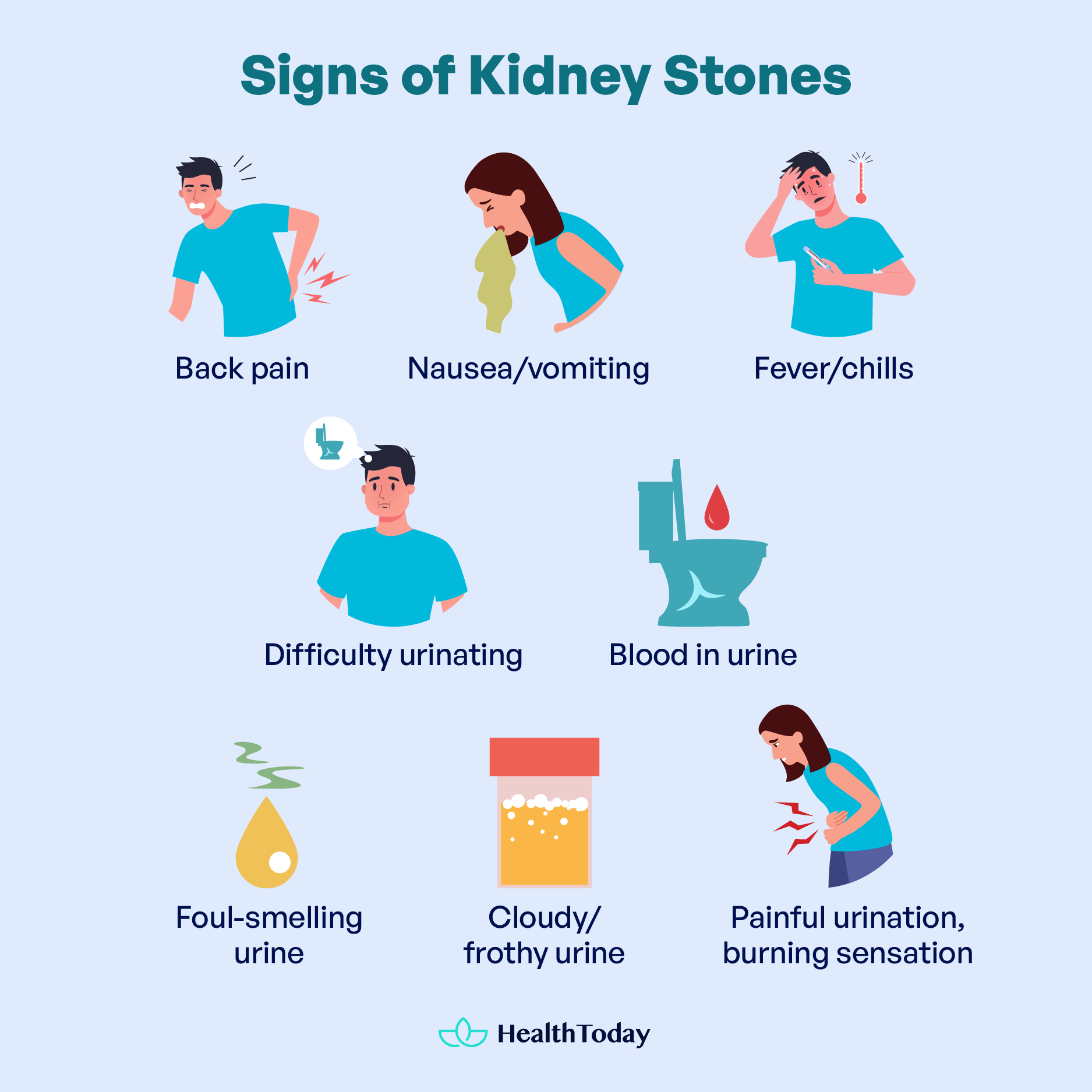

Apart from back pain, there are other signs and symptoms of renal stones, such as the following (2, 4, 5):
- Nausea and vomiting
- Fever along with chills indicates an infection caused by the build-up of urine. However, an infection can also lead to the formation of a stone.
- Difficulty in urinating or urine comes in smaller quantities with recurrent urges to urinate.
- Bloody urine or a reddish tinge to urine may indicate damage caused by a stone that has passed from the bladder through the urethra (the structure of the urinary system that drains urine from the body).
- Foul-smelling urine
- Cloudy or frothy urine
- Pain while urinating
- Feeling a burning sensation while urinating
Smaller kidney stones do not cause any pain or prominent symptoms most of the time (2).
Other possible causes of back pain:
Besides kidney stones; there are other causes of back pain. These are as follows (8, 9, 10):
- Muscle sprains or strains
- Certain health conditions, such as osteoporosis, can increase the risk of fractures of the spine.
- Age-related changes to the vertebral disks that act as cushions between two vertebrae (backbone)
- A bulging vertebral disk can compress the nerves.
- Spinal stenosis is a condition in which the space enclosing the spinal cord is too narrow, putting pressure on nerves.
- Abnormal curvature of the spine (scoliosis)
- Arthritis (inflammation of joints), such as osteoarthritis and ankylosing spondylitis
- Spondylolisthesis, which occurs when vertebrae slip out of place
- Chronic stress
- Fibromyalgia
- Cancers of the backbone (vertebral column)
- Infections of the vertebral column or back muscles
- Endometriosis is a condition in females where the tissues that form the inner wall of the uterus are present outside the uterus in abnormal locations, resulting in painful periods.
- Pregnancy in later stages




Kidney stones and back pain: Treatments
The treatment of kidney stones and associated back pain depends on the size of the stone and the severity of symptoms (6). Smaller stones (less than 3 mm) with mild symptoms are usually managed with increased water intake and painkillers (2, 12). Moderate to large stones (>8 mm) that cause obstruction and difficulty urinating, along with severe symptoms, are usually managed with procedures depending upon the specific symptoms (2, 12).
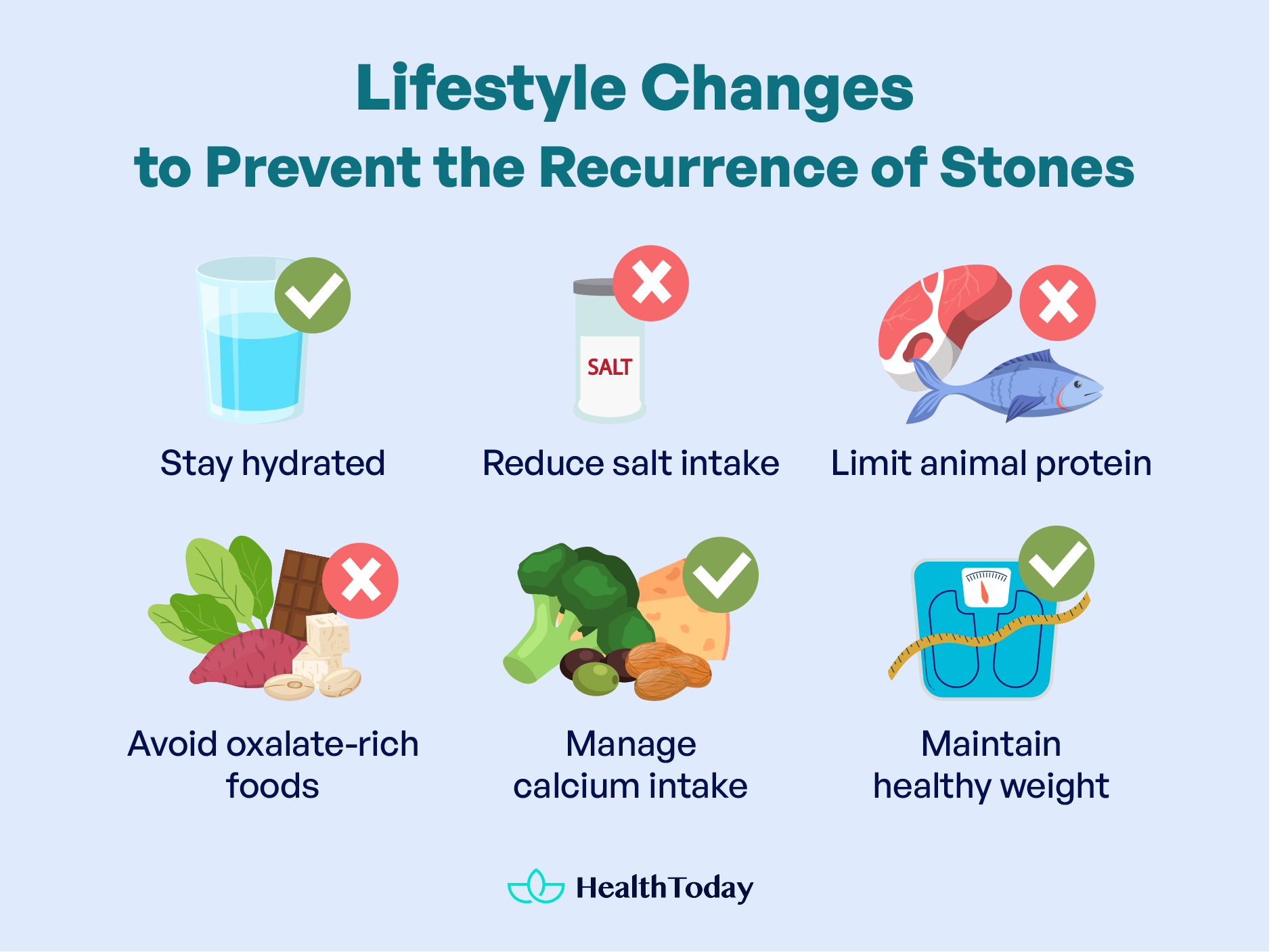

Medications
For a small stone with mild symptoms, your doctor may prescribe medicines that relax the ureters (for example, nifedipine), painkillers, and anti-emetics (medicines that stop nausea or vomiting). Your doctor would also advise you to drink plenty of fluid (2).
Procedures
A stone that cannot be managed with medications can be treated with certain procedures (2, 6):
- Shock wave lithotripsy: intense sound waves break up the stone into smaller pieces that then pass out with urine.
- Ureteroscopy: a small camera that contains a tool to remove the stone is inserted in the ureter.
- Percutaneous nephrolithotomy: a tube is inserted through the skin on your back to reach the ureter and retrieve the stone.
- Surgery: If you have a large stone, your doctor will perform open or laparoscopic (through a camera) surgery to remove it.
Lifestyle changes to prevent the recurrence of stones
Prevention techniques depend upon the cause of your stone. Listed below are a few general lifestyle changes that can help decrease the chances of stone recurrence (11):
- Drink enough water to produce at least 2 liters of urine a day. In hot climates or when exercising a lot, you will increase the fluid intake even more.
- Decrease your salt intake.
- Decrease the intake of animal protein.
- For oxalate stones, cut down on foods rich in oxalate. These are spinach, sweet potatoes, chocolates, soy products, beets, and nuts.
- Do not take calcium supplements unless your doctor advises you to. You can continue to eat calcium-containing food.
- Maintain a healthy weight (2).
The treatment of kidney stones depends upon the type and size. Smaller stones with mild symptoms can be managed with medications and increased fluid intake. Moderate to large stones usually require surgical interventions such as lithotripsy, ureteroscopy, or percutaneous nephrolithotomy. Prevention of stones requires increased water intake along with decreased intake of salt, oxalate-containing foods, and animal protein.




Kidney pain or muscle pain: The differences
The differences between kidney pain and muscle pain are as follows (13):
- Dull pain in the lower back may be due to spine or muscle issues rather than kidney pain. Kidney pain is usually felt a little higher below the ribs.
- Muscle pain increases with physical activity, while kidney pain does not increase with activity.
When to seek your doctor?
Do not wait to see your doctor if you are experiencing kidney stone pain. Your doctor will perform tests to determine the size and location of the stone and will treat it accordingly (2). Following are the signs that should prompt you to urgently see your doctor (1, 5):
- Severe pain that is not relieved with posture change, or you cannot find any position that gives you even the slightest relief.
- If you are experiencing pain with high-grade fever and chills
- If you see blood in your urine
- If you are experiencing nausea and vomiting along with the pain
Kidney stones can cause back pain. The exact cause of kidney stones depends upon its composition. When kidney stones pass to the ureters, they cause spasms of the ureters, ultimately producing intense pain in the flanks (side of the belly) radiating to the back and groin region. The pain of kidney stones is colicky, which means it comes in intervals and ends abruptly.
Other associated symptoms of kidney stones are nausea, vomiting, fever, foul-smelling urine, difficulty urinating, blood in urine, and a burning sensation while urinating.
Muscle sprains, osteoporosis, arthritis, scoliosis, chronic stress, and fibromyalgia can cause back pain. If kidney stones are small, they can be treated with painkillers and medications that relax the ureters. If they are large, they may require a surgical procedure. If you notice high-grade fever, blood in urine, or vomiting along with kidney pain, it’s time to seek medical attention as soon as possible.
Is kidney stone pain constant?
Do kidney stones cause lower back pain?
What does back pain from kidney stones feel like?
Can you live a long life with kidney stones?
Yes. Kidney stones are not deadly, nor do they reduce life expectancy (2). They are completely curable, depending on their size and location, through medications, lifestyle changes, or various procedures.
Summary
Kidney stones can cause back pain. The exact cause of kidney stones depends upon its composition. When kidney stones pass to the ureters, they cause spasms of the ureters, ultimately producing intense pain in the flanks (side of the belly) radiating to the back and groin region. The pain of kidney stones is colicky, which means it comes in intervals and ends abruptly. Other associated symptoms of kidney stones are nausea, vomiting, fever, foul-smelling urine, difficulty urinating, blood in urine, and a burning sensation while urinating.
Muscle sprains, osteoporosis, arthritis, scoliosis, chronic stress, and fibromyalgia can cause back pain. If kidney stones are small, they can be treated with painkillers and medications that relax the ureters. If they are large, they may require a surgical procedure. If you notice high-grade fever, blood in urine, or vomiting along with kidney pain, it’s time to seek medical attention as soon as possible.





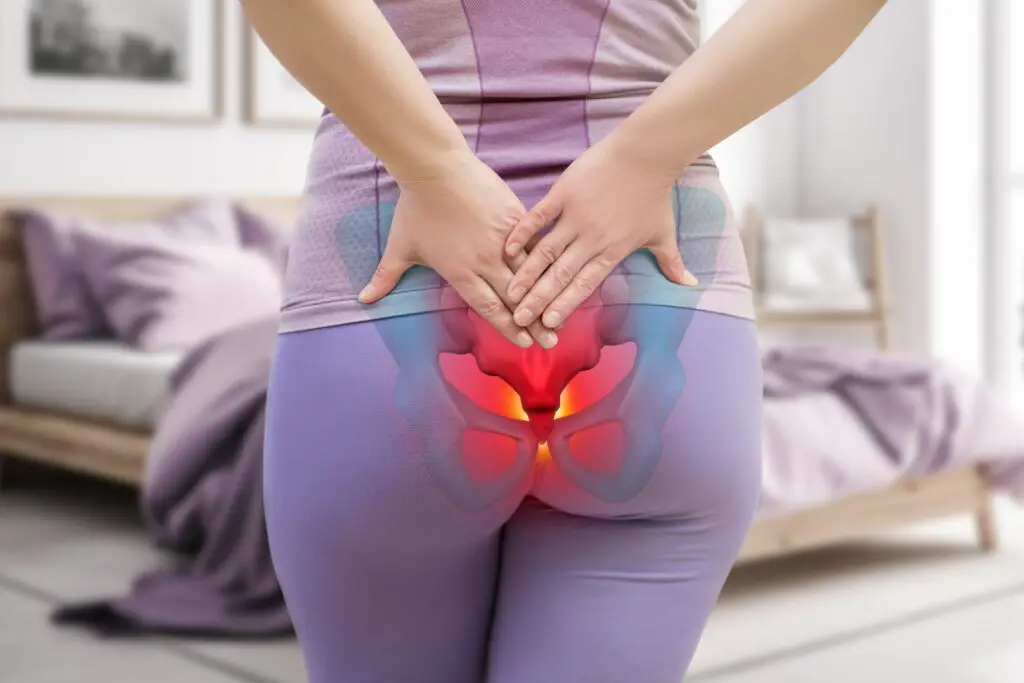
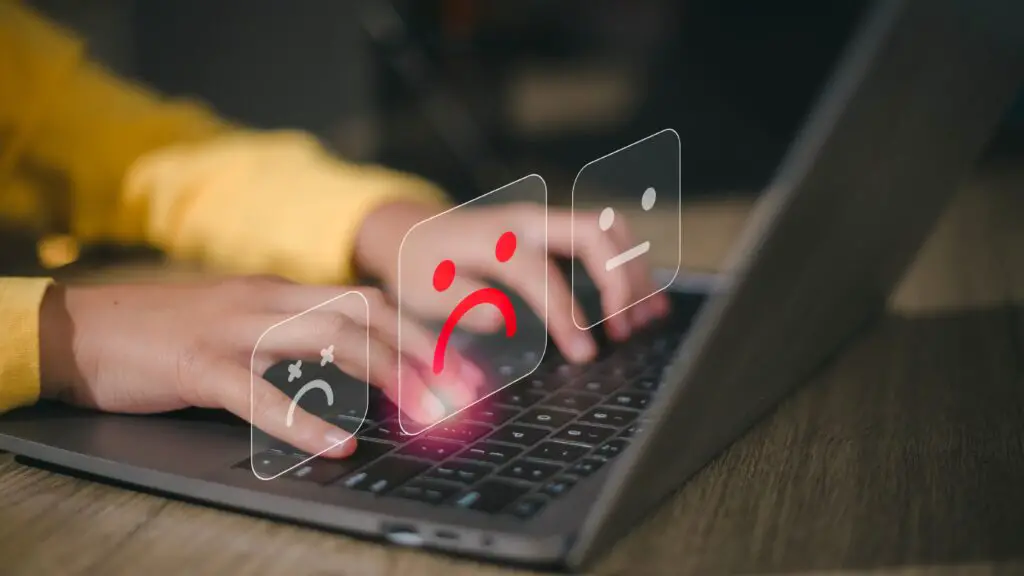


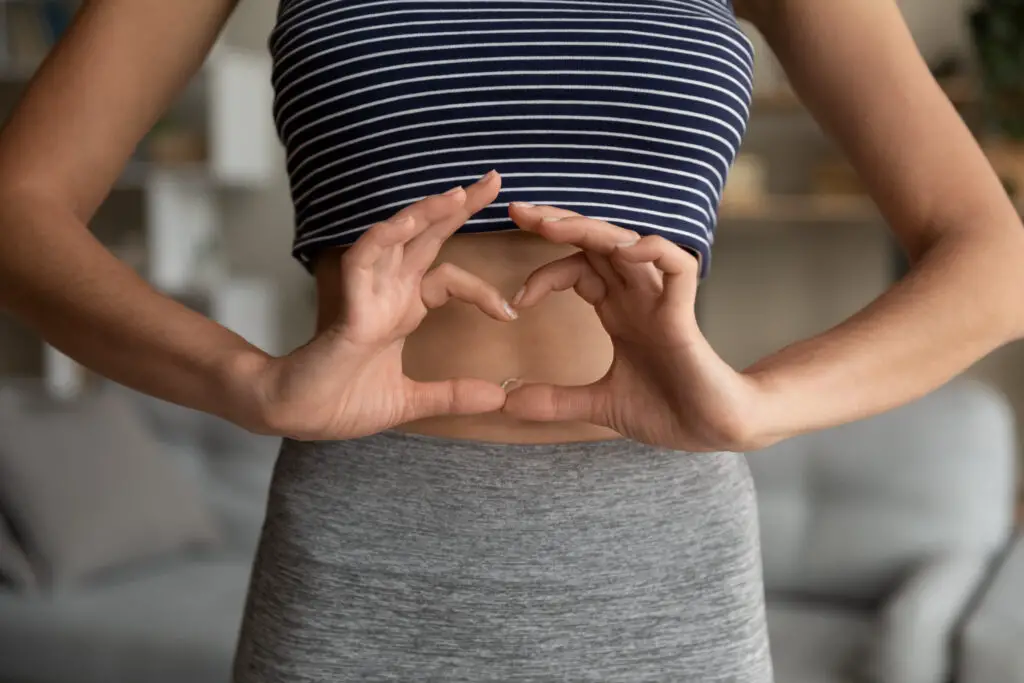
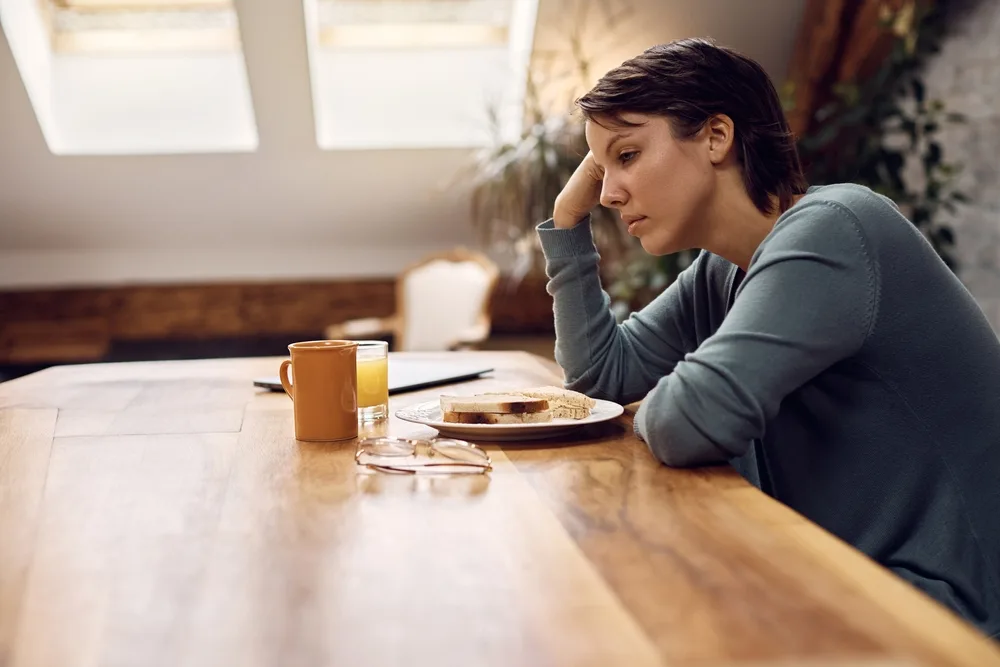
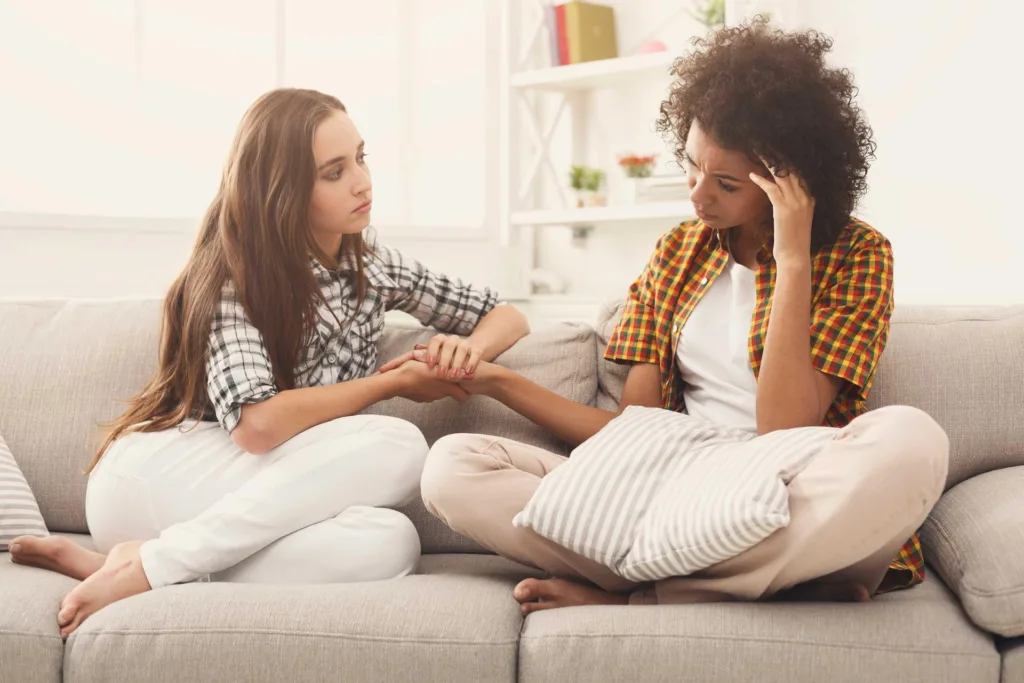
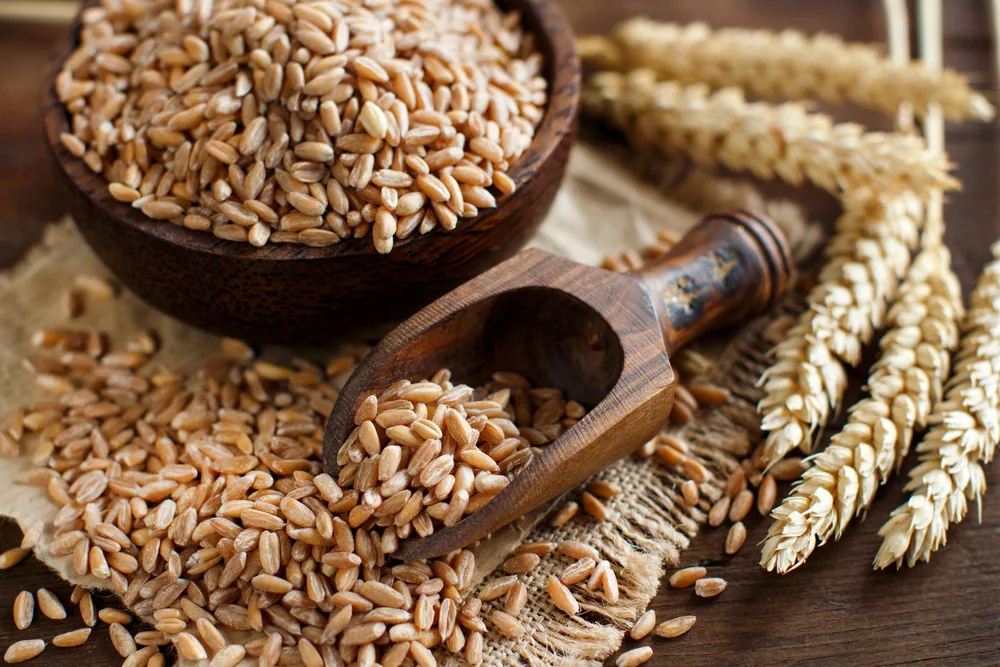
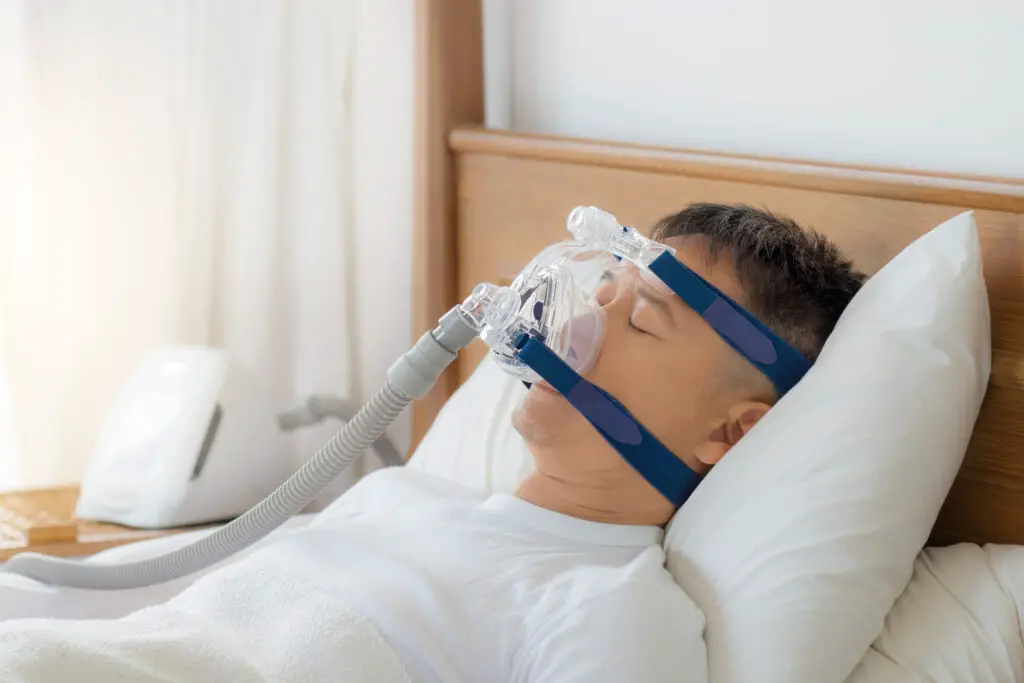
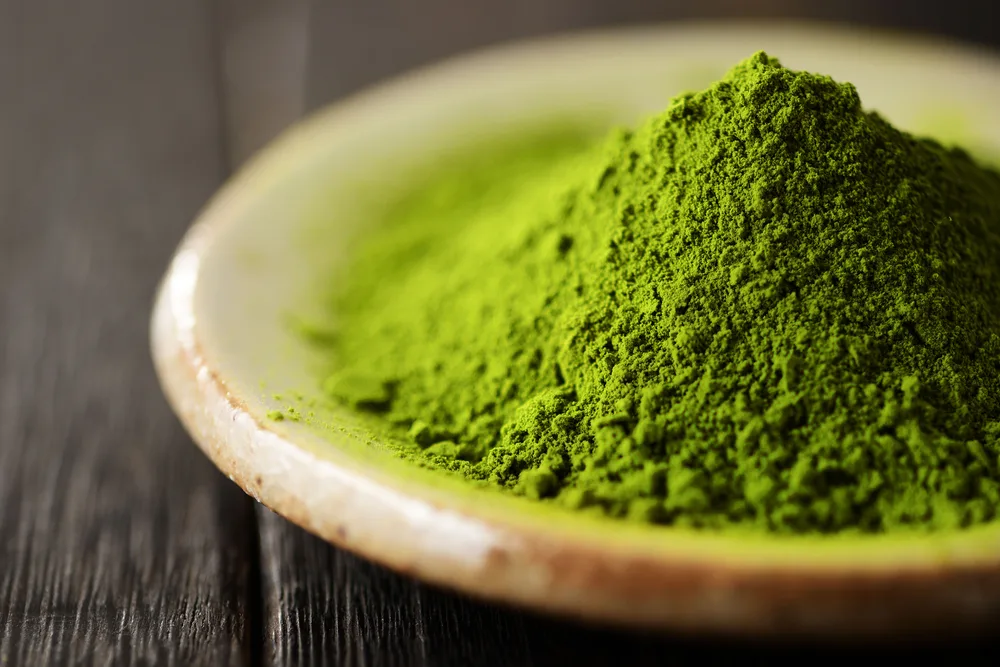
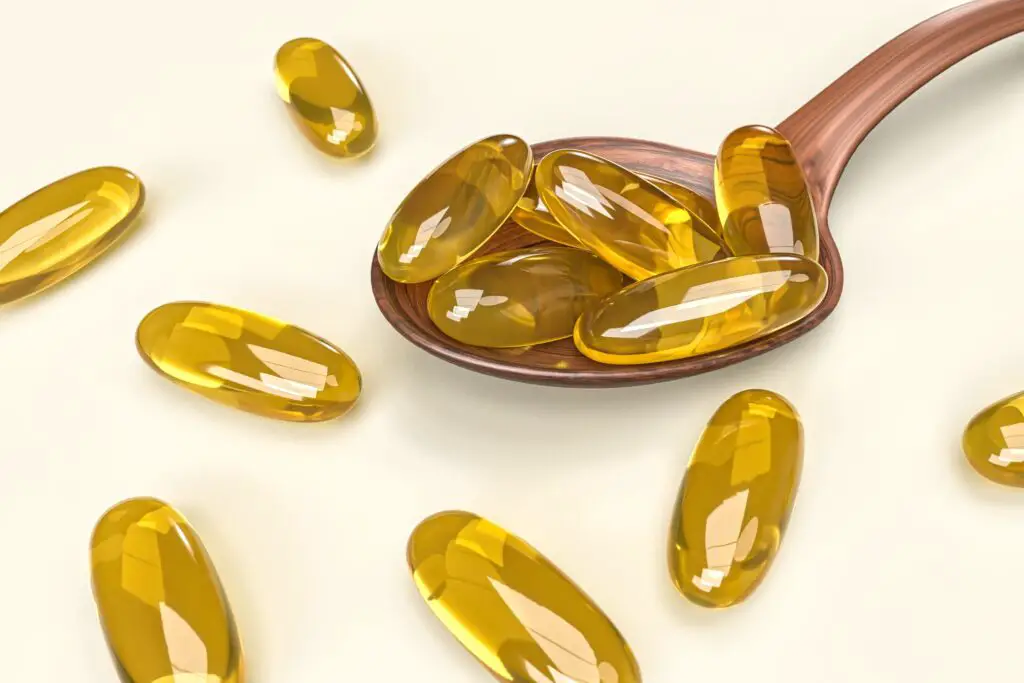

Comments
0